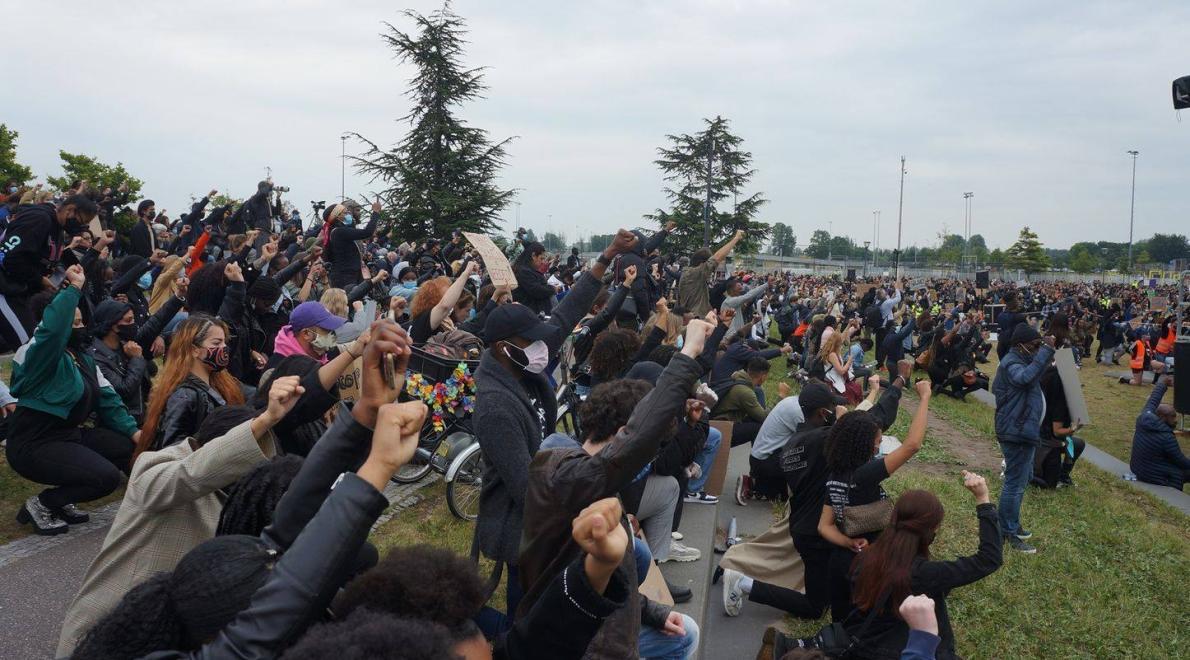Image



Members of the Working Group visited Bern, Zurich, Lausanne and Geneva, to gain first-hand knowledge on racism, racial discrimination, xenophobia and related intolerance affecting people of African descent.
“We welcome a number of positive initiatives such as the emerging public discourse specific to anti-Black racism, conversations between State and civil society on the presence of racist and colonial symbols in public space, and the strong engagement of civil society in the fight against racial profiling and police brutality,” Day said.
The delegation, which also included human rights experts Catherine Namakula and Barbara Reynolds, welcomed ongoing efforts by the administration to address racial discrimination faced by people of African descent, including civil society initiatives of people of African descent, and their ongoing engagement with local governments.
However, the Working Group noted with concern the prevalence of systemic racism.
There is not adequate independence in the investigation and prosecution of police misconduct, brutality and killings,” said Day.
During the mission, the human rights experts engaged with representatives of government, human rights institutions and civil society.
“The Working Group also met with Mr. Brian K., whose situation is a stark example of systemic racism in Switzerland,” said Day, referring to the 26-year-old who has been subjected to prolonged solitary confinement and a series of other incidents and measures since 2006, when he was a young child. “Racial discrimination and injustice is evident at every stage of this case, including a strong reliance on negative racial stereotypes and racialized beliefs about Black men, even as children.”
They also promoted the International Decade for People of African Descent, which runs from 2015 to 2024 and aims to highlight the contribution of people of African descent to societies and strengthen national, regional and international cooperation to ensure the human rights of people of African descent are respected, promoted and fulfilled.
The Working Group will present its findings and recommendations to the Human Rights Council in September 2022.
ENDS
The Working Group of Experts on People of African Descent was established on 25 April 2002 by the then Commission on Human Rights, following the World Conference against Racism held in Durban in 2001. It is composed of five independent experts: Ms. Dominique Day (United States of America) current Chair-Rapporteur; Ms. Catherine Namakula (Uganda); Ms. Miriam Ekiudoko (Hungary); Ms. Barbara Reynolds (Guyana) and Mr. Sushil Raj (India).
The Working Group is part of what is known as the Special Procedures of the United Nations Human Rights Council. Special Procedures, the largest body of independent experts in the United Nations Human Rights system, is the general name of the Council's independent fact-finding and monitoring mechanisms. Special Procedures mandate-holders are independent human rights experts appointed by the Human Rights Council to address either specific country situations or thematic issues in all parts of the world. They are not UN staff and are independent from any government or organization. They serve in their individual capacity and do not receive a salary for their work.
UN Human Rights, country page – Switzerland